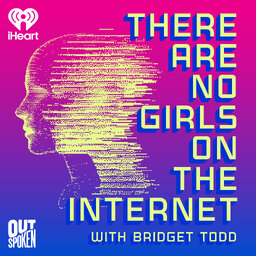Elon Musk is buying Twitter. Here’s what it means for marginalized folks on
In this EMERGENCY EPISODE, Bridget sits down with producer Michael to discuss the news that Twitter’s board accepted billionaire Elon Musk’s 44 billion dollar bid to buy the social media platform and what it means for traditionally marginalized users.
Learn more about UltraViolet’s quest to build a feminist internet: http://feministnet.com/
Subscribe to our newsletter: Tangoti.com/newsletter
Want to support the show? (thank you!)
Buy some merch at There Are No Girls on the Internet’s store: TANGOTI.COM/STORE
Just want to say god dag / Բարեւ Ձեզ / hello? We'd love to hear from you! hello@tangoti.com
In 1 playlist(s)
There Are No Girls on the Internet
Marginalized voices have always been at the forefront of the internet, yet our stories often go over…Social links
Follow podcast
Recent clips

Chris Pratt Is Hawking an Anti-Abortion Prayer App; Elon's Grok Is Doxxing Women; DOGE Bros Let ChatGPT Do Their Job; Trump’s Big DEI Loss – NEWS ROUNDUP
1:07:04

Satanic Panic of the 1980s Is Happening Again — This Time in Minnesota Daycares (w/ Sarah Marshall)
51:40

Amazon Ring Super Bowl Ad BACKFIRES; YouTubers Exploit Women's Arrest Videos; Salesforce CEO ICE "Joke" – NEWS ROUNDUP!
1:10:54
 There Are No Girls on the Internet
There Are No Girls on the Internet